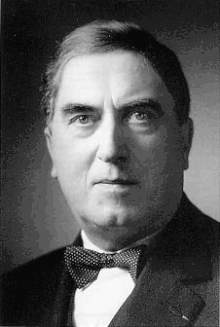Notre Père
Notre Père (Our Father), Op. 14, is a sacred motet by Maurice Duruflé, setting the Lord's Prayer in French as a sacred motet. It was published for voice and organ in 1977, and for a four-part choir a cappella in 1978, by Éditions Durand. The composer dedicated his last published composition to his wife, Marie-Madeleine Duruflé. It is his last published composition, and his only work suitable for congregational singing.
| Notre Père | |
|---|---|
| Sacred motet by Maurice Duruflé | |
 The composer c. 1962 | |
| English | Our Father |
| Catalogue | Op. 14 |
| Text | Lord's Prayer |
| Language | French |
| Composed | 1976 |
| Dedication | Marie-Madeleine Duruflé |
| Published | 1977/78 |
| Scoring |
|
History
Duruflé, who was organist in at Saint-Étienne-du-Mont in Paris[1] and also director of the Gregorian Institute of Paris,[2] set the Lord's Prayer in French as Notre Père for liturgical use.[3] It was a commission from a priest at Saint-Etienne.[1] It is his only work suitable for congregational singing, as requested by the Second Vatican Council.[4] He regretted the decline of Gregorian chant in Latin which had influenced his earlier compositions.[4] He wrote first a version for unison male voices with organ,[2] then a transcription for a four-part choir a cappella.[2] Both versions were published by Éditions Durand, dedicated to his wife, Marie-Madeleine Duruflé, the unison version in 1977 and the choral version in 1978. It became his last published composition,[5] which appeared also with an English translation.[2]
Music
The melody of Notre Pére is chant-like, although not original Gregorian chant. Like chant, it is in free motion and with narrow ambitus, and the beginning uses the same notes as the chant melody.[1] It is written in reverential approach to the prayer, with a subtle treatment of harmony used to interpret the significant text in homophony. The composition is in F major, mostly in triple meter but shifting to 2/4 time when the natural flow of the text demands it.[2] The four-part setting is accessible, and the unison version can also be performed by children's choirs.[2]
References
Cited sources
- Frazier, James E. (2007). Notre Père, Op. 14. The Man and his Music. University of Rochester Press. pp. 156–180. ISBN 978-1-58-046227-3.CS1 maint: ref=harv (link)
- Rone, Vincent (13 April 2018). "Vatican II, Maurice Duruflé, and the Harmony of Resignation in Notre père: Part Two". Journal of Musicological Research. 37 (2): 166–180. doi:10.1080/01411896.2018.1451713.
- Sutton, Wadham (1989). "Notre Père, Op 14". Hyperion Records. Retrieved 25 November 2019.CS1 maint: ref=harv (link)
- "Les oeuvres de Maurice Duruflé" (in French). Association Maurice & Marie-Madeleine Duruflé. 2019. Retrieved 25 November 2019.
- "Our Father (Notre Pere)". American Choral Directors Association. 2007. Retrieved 25 November 2019.